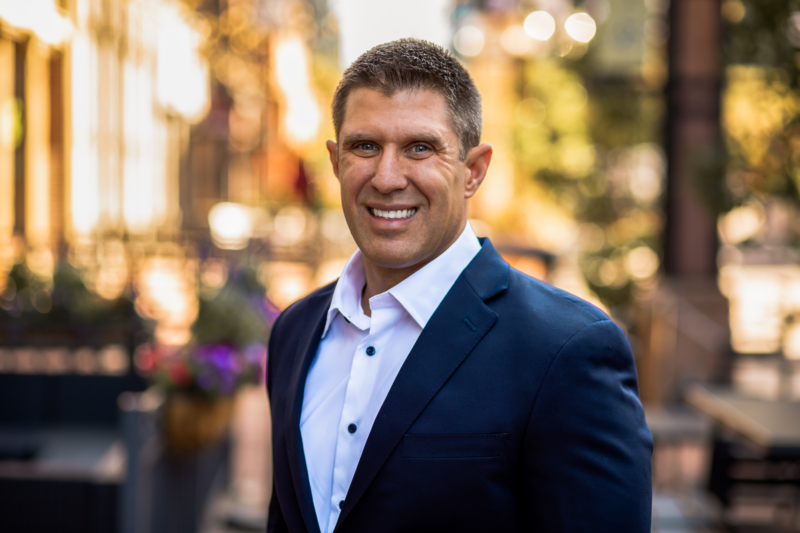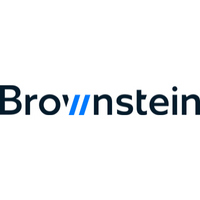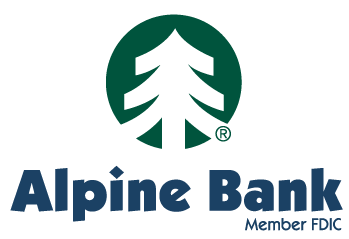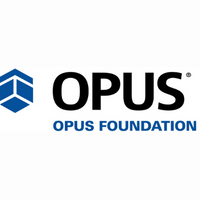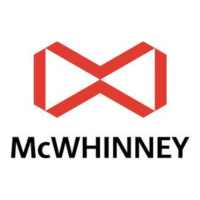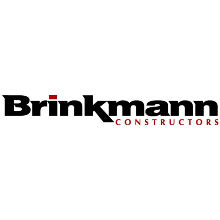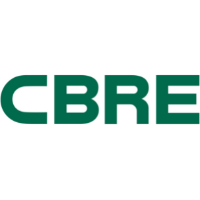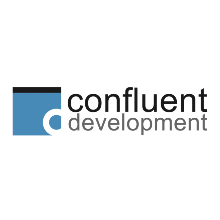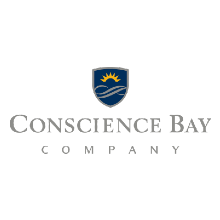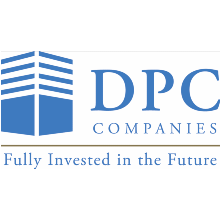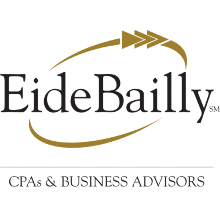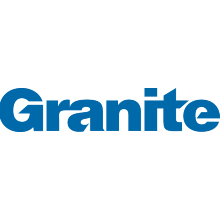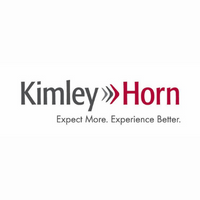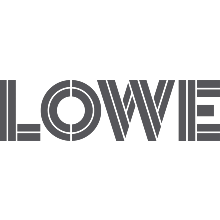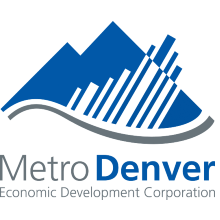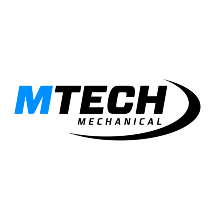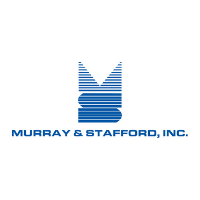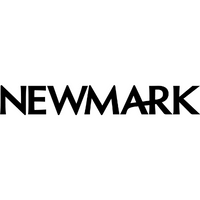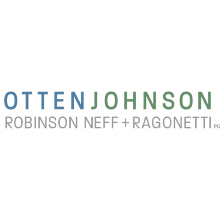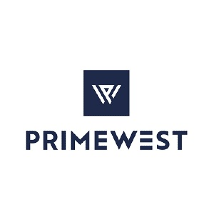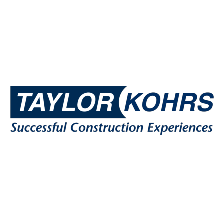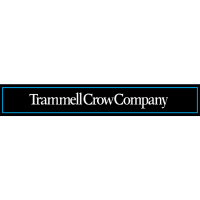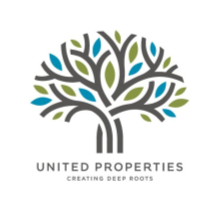Member PerspectivesOur NAIOP Colorado members share subject matter expertise focused on improving the commercial real estate industry through personal stories that inspire enthusiasm, innovation and entrepreneurship. NAIOP Colorado Perspectives: James Mansfield Submitted by Abby Kochevar, Published March 2024 James M. Mansfield is the former Principal Managing Director of Pinnacle Real Estate Advisors who recently left Denver for a new adventure in Wyoming. For almost four decades, James worked for the top brokerage and development firms in metro Denver and served as the NAIOP Colorado President in 2019. In this article, James shares how he leverages his extensive real estate experience to navigate cross-border opportunities and forge personal and professional connections in Wyoming and Colorado. In the dynamic world of real estate, James Mansfield embodies a unique spirit of adventure. Formerly a Managing Broker at Pinnacle Real Estate Advisors and Cushman & Wakefield and a NAIOP past President, Mansfield has recently embarked on a new chapter. He has taken his skills to Hayden Outdoors Real Estate where he has found a new calling brokering farm, ranch and recreational properties in Wyoming and Colorado. James's pivot to farm/ranch brokerage was more than a career move; it was a realization that he could expand his expertise and challenge himself in a related real estate sector. With nearly forty years of real estate transactional and managerial experience with Grubb & Ellis, Brookfield and Opus, James' broad knowledge is drawn upon in his new role. He maintains Colorado and Wyoming real estate licenses and connections serving as a resource for cross-border opportunities. Mansfield and his wife, Jayme, discovered a special connection with Wyoming and the families in the area during their frequent visits. When an opportunity to purchase a ranch property in southern Wyoming became a reality, Mansfield and his wife didn't hesitate. James states, "change and new adventure keeps the spirit alive". With three sons pursuing their careers, the couple had less strings attached. As multi-generational Colorado natives, they maintain an appreciation for the freedom to pursue success with the can-do attitude of the American West. Jayme, a lifelong horse lover, teacher, artist and author, plays a pivotal role in shaping their new life in Wyoming. She leads horse and art retreats blending her creative passions. Their love for ranch life and the arts deepen the Mansfield family's connection to their new Wyoming home, making it a place where both personal and professional aspirations thrive. Teaming with Jaci Cole at Hayden Outdoors, James found an ideal professional partner. Jaci, with nearly a decade of real estate experience, grew up on a Colorado ranch and attended the University of Wyoming. Together, they navigate the details of brokering farm, ranch and recreational properties, combining their real estate know-how and passion for the land. This collaborative effort, blends their shared experiences for a unique team value. The shift in roles, from management to being directly involved in client relationships further elevates James' career. Engaging with clients, marketing and strategizing negotiations has always been his strengths. Mansfield's transition to Hayden Outdoors has not only added to his experience, but reconnected him with the hands-on aspects of brokering. As he navigates the vast landscapes of Wyoming and Colorado, Mansfield's story serves as an inspiration for those looking to align their careers with their deepest interests, creating a harmonious blend of work and personal fulfillment. James' new office sits over the banks of a flowing river with horses grazing in the pasture surrounding their log home. Showings at times are a hundred miles away, giving Mansfield time to reflect and be grateful for the personal drive to pursue a new calling, view a broader landscape and help others achieve their family dreams and aspirations. Connect with James now by phone at 303.726.1099 or email at [email protected].
NAIOP Colorado Perspectives: John F. EllisSubmitted by Alicia Nikifarava, Published December 2023
Alicia: Most people couldn’t tell you what title insurance is let alone make a career out of selling it. How did you get into the title business and what has been your secret to success? John: My fraternity brother, who worked in the title business, and I lived in the same apartment complex back in Alabama. He was very successful and day drinking with realtors by the pool meanwhile I worked a 9 to 5 at the bank in the trust department. So, I thought, what am I doing wrong? Long story short, he helped get me some interviews and I got hired at Lawyer’s Title in Boulder. There was no day drinking but I did quickly move up to cover different regions and had the opportunity to open new offices on behalf of the company. I’ve always managed to keep both sides of the relationship in perspective and never stop learning in the process which I believe is key for long-term success in any industry. While we do sell a product/service, this is a people business and keeping the relationship at the center of it is a key component. Always make sure your approach is authentic, professional, and respectful. Alicia: What advice do you have for young leaders in the industry who are just now experiencing their first ‘dip’ in the market cycle? John: First, don’t freak out and switch careers. Focus on your core values and lead with them. Second, it’s easier to avoid the pitfalls of a recession or downturn market if you’re being smart when you’re on top of the mountain. A Ford is just as good as a Porsche. If you’re being careful about your lifestyle and your spending approach, you’re going to be just fine. In my experience, Colorado is usually one of the last states to go into a recession and one of the first to come out of it. Alicia: My generation has a reputation of chasing the idea of greener grass but not always taking the time to water their own aka job hopping. Having been with only three companies during your 52-year career, do you think there is any reward in loyalty? John: I hope there is. It’s important to remember that when you’re looking at the grass on the other side of the fence, it very well may be AstroTurf. The sense of loyalty and appreciation is a two-way street. As an employee, you shouldn’t be one foot in the door constantly looking or waiting for other opportunities. You should invest in your job as much as your employer should invest in you. One doesn’t exist without the other. Alicia: You are a NAIOP Past President and are still an active member. I also just learned that you were Justin’s (Pless) mentor back in the early days of the DL Mentor/Mentee program. You’ve stayed consistent with NAIOP throughout your career in various roles and committees, what do you think is the value in being a member? John: I look at NAIOP as the swimming pool of commercial real estate. You can dive in with both feet in the deep end or dip a toe in the shallow end; either is fine, but the experience is entirely yours. To me, the fact that one organization can satisfy each member at whatever participation level they want to have is the attraction with the chapter. I’ve taken the deep end approach and it has served me quite well from a relationship standpoint. NAIOP always has an open door for newcomers and long-time members and having that shared platform gives you an advantage. Alicia: One last but very important question - what’s the secret to your mustache? Our male readers need all the details, tips, tricks, etc. John: Well, I’ve got a special comb and a short, little clippers. I don’t like things that tickle so I keep it trimmed. To be honest, my wife would probably divorce me if I got rid of it at this point, so this is what it is.
NAIOP Colorado Perspectives: Lea Ann FowlerSubmitted by Alicia Nikifarava - May 2023, Published August 2023
Alicia: Lea Ann, you have built an incredible legal practice that spans over twenty-five years. What pushed you to pursue commercial real estate and specifically, finance and lending? Lea Ann: To be honest, I kind of fell into it. I began working for a large law firm right out of law school and our biggest client, at the time, was doing development of the Denver Tech Center. I cut my teeth in real estate assisting with acquisitions and leasing for that client. It was incredibly interesting and gratifying to be a part of the activation of developments in my own backyard and to experience a project from the ground up stage to full development just hooked me. I enjoy finance transactions, in particular because they allow me to work on many different parts of the transaction – entitlements, due diligence, acquisition and structuring and each deal has its own unique aspects.
Lea Ann: Just when you think you have seen everything, something will come across my desk that I haven’t encountered before. That’s what makes commercial real estate fun to be a part of, even after years in the industry. There are always aspects of a transaction that are just different enough – whether you’re representing a different side of the deal or figuring out a new deal structure that warrants a new type of agreement- it forces me to get creative and work around the issues to do what’s best for my clients. Last year, I worked on a transaction dealing with marina properties which required a working knowledge of submerged land leases, which was a new one for me- always a twist to keep things interesting.
Lea Ann: We’re seeing more capital sources in terms of where the funds are coming from; there are fewer numbers of the more traditional institutional lenders and more private equity groups and funds coming into the market to try and compete on pricing and less regulation. The deal structures aren’t that dramatically different, but the players involved have changed and has added a level of complexity. There is a greater need for more lenders as a result of bank failures and traditional banks shuttering their lending arms and minimizing their credit limits for real estate assets.
Lea Ann: NAIOP is at the center of the Denver commercial real estate community; it provides a platform for both young and established leaders with opportunities to connect in a more personal way. For those starting out in the industry, this is an impactful resource and for those who are well into their careers, it’s an opportunity to give back and shape the next generation. To be able to attend a NAIOP breakfast, get market updates and sit next to someone you’re either working on opposite sides of a deal with or trying to get in front of is what it’s all about. As with all things, you get out of an organization what you put in, and NAIOP is no different. My best advice is to get involved beyond a surface level. Serve on the committees, attend the happy hours and events, get on the board-- spend the time to build your network and it will pay off. The return on my time spent with the organization vs. the financial investment has been tenfold for me.
Lea Ann: The most important thing is to be yourself and to understand your own boundaries and limitations. When comparing firms, you should focus on more than the billable hour requirement, remote work component, and salary. If you haven’t focused on your personal and professional objectives before you start interviewing, it makes it that much harder to make the right decision. You may end up not making the best choice if you don’t establish those expectations from the start only because you didn’t take the time to determine what priorities are most important for you and your career path. I find the commercial real estate industry to be generally a more social, upbeat, and fun crowd to both work and network with. Placing importance on the people you surround yourself with as well as finding a place where you’ll grow the most, meet career mentors, hit career peaks and learn from challenges is key. Those will be the people who will advocate for you throughout your career and help you discover additional opportunities to succeed. With that being said, you also have to do the hard work. You can’t sidestep the learning curve, the continuous effort and hours it takes to do the best job for your firm and your clients. Reputation and work ethic is everything and it is earned every day.
NAIOP Colorado Perspectives: Justin PlessMarch 28, 2023Submitted by Richard Self
Richard - You are the founding principal of Pless Law Firm. Can you please tell us a bit about your background, the origins of your Firm, and the nature of the work and legal services your Firm offers? Justin - I grew up on a farm in Minnesota where my family raised corn, soybeans and beef cattle. Joined the Army right out of high school where I served as an infantry paratrooper in the 82nd Airborne Division. After serving 4 years in the military, I attended the University of North Carolina at Chapel Hill where I received my bachelor’s degree in History. I then went on to get my law degree at CU Boulder. I began my legal career at Faegre & Benson in 2007 before breaking off and starting my own commercial real estate law practice in 2009. We’ve focused on being the best at that, so our practice is still strictly transactional commercial real estate, but have grown with our clients to offer expertise in corporate, finance, construction, development, and land use matters. We’re looking to add partner and associate attorneys in those complementary practice areas within the next two years but I don’t see us doing family law any time soon. Richard - Pless Law Firm opened an office in Texas right after the pandemic. Why Austin? What similarities/differences have you noticed being in both markets? Justin - During the pandemic, we learned the value of being diversified within the different practice areas and also with the types of clients and geographic locations. For example, while leasing came to a halt in Colorado, we had clients in Missouri and Arkansas that were taking advantage of the downturn by acquiring land which led us to hire attorneys when other firms were stagnant or laying people off. Austin was an easy choice because the markets are very similar aside from the state specific regulatory and statutory differences. Both are very attractive cities from an investment and development perspective due to inflow migration and corporate relocations from the coasts. Both have experienced significant growth, but Austin tenant mix more tech heavy while the Denver/Boulder area has a more diversified base of tenants in tech, bioscience, energy aerospace. Denver also has more distribution and industrial projects, in part because of the larger capacity of DIA and the proximity to both I25 and I 70. Both cities also face similar challenges related to housing supply and affordability. Austin has a very complex land use code that is difficult to modify or work around. Denver has a more straightforward land use code but has recently imposed additional requirements on developers such as the inclusionary housing ordinance passed in 2022. Richard - COVID created considerable shifts in the real estate industry – commercial and residential. What language/provisions have you noticed being added that weren’t standard before? Justin - Thinking back to 2021, we dealt with a lot of matters related to tenant delay, rent payment restructuring, lease amendments, PSA extensions for due diligence, etc. From a long-term perspective, I don’t think COVID changed contract language dramatically. COVID had a more direct impact on the economics of leases and transactions than anything else. Richard - What do you believe sets your Firm apart from others? Justin - It sounds cliche, but more than anything our people set us apart from other law firms. I started the firm on my own, but I've been fortunate to assemble an outstanding and talented group of attorneys and staff that share my belief that attorneys can serve as an asset rather than an impediment to real estate transactions. I view our role primarily as that of problem solver and advisor to our clients, and our team shares that mentality. To accomplish this, all of our attorneys and staff develop an understanding of both legal and business issues that impact our clients and their projects. By maintaining awareness of the business side of the equation, we're often able to manage difficult negotiations by focusing on the legal issues that will have the greatest impact on our client from a business standpoint, rather than getting bogged down in legal minutia. Additionally, we are keenly aware that time is the killer of all deals, so we make it a priority to engage on new projects as soon as possible and to turn drafts and comments quickly. This focus has helped fuel our recent growth, as we've been able to attract many sophisticated clients that typically work with larger law firms. Richard - How have you been involved with NAIOP throughout the years and what value has the organization had on your career? Justin - I have been involved with NAIOP since the beginning of my career and continue to support it by sponsoring or attending many of the events. I believe there’s great value in that; NAIOP has given me the opportunity to meet and develop long-term relationships in the industry and continues to do the same for my entire team. A large part of that sustained success is due to Jayma (File) and Kathie (Barstnar) – I don’t think that the organization would be where it is today without their dedication and leadership.
NAIOP Colorado Perspectives: Peter Coakley, A Career of Challenges and IntegrityMarch 23, 2023Submitted by Brian Dietz The greatest asset I developed during my stint at Opus Development Company, a few years ago, was the friendship I formed with Peter Coakley, NAIOP Colorado’s 1992 Chapter President. I count myself as incredibly fortunate to have been able to go to work every day and spend time with such a smart, kind, and generous individual. His infectious sense of humor was the cherry on top! The greatest asset I developed during my stint at Opus Development Company, a few years ago, was the friendship I formed with Peter Coakley, NAIOP Colorado’s 1992 Chapter President. I count myself as incredibly fortunate to have been able to go to work every day and spend time with such a smart, kind, and generous individual. His infectious sense of humor was the cherry on top!
After completing a Bachelor of Science in Finance at Boston College, Peter moved to Aspen Colorado in 1973. Peter has spent many hours regaling me with stories of camping across from Hunter S. Thompson’s property, driving snowcats through downtown Aspen, countless days on the ski slopes, hiking in the back country, and managing the Highlands Inn at the base of Aspen Highlands. I spent several years living in Steamboat prior to moving to Denver, and Peter and I immediately bonded over our shared histories of ski bumming in the Colorado Rockies. In 1981, Peter and his wife, Pam, relocated to Denver. He moved with few business contacts, no MBA, and limited experience in Commercial Real Estate. Peter set his sights on brokerage. Initially, he received negative feedback from potential employers, telling him he didn’t have the temperament for sales. However, Peter was persistent, and he ultimately landed an in-house office brokerage position with Inverness Properties, working with legendary John O’Meara. This experience fortified Peter’s instinct to be persistent in the pursuit of his goals, a virtue he endlessly encourages in others. In that regard, Peter is fond of repeating the quote from Hamlet “to thine own self be true”. The 1980’s were a challenging time for the office product type in Denver. At the time, Denver possessed an economy of limited breadth, relying predominantly on the oil and gas industry. Following the energy crises of the 1970’s, the bottom fell out of the oil market in the 80’s. This, in the face of an overbuilt Denver office market, resulted in a ten-year depression of the market. Downtown Denver was filled with what were referred to as “see through buildings”, because they had so little occupancy that you could see the sun shining right through the building from the other side. During much of this time, Peter worked for Trizec Properties leasing Dominion Plaza in Denver’s CBD. The market was so depressed that Peter and his peers were oftentimes leasing space at rates so low they wouldn’t even cover the owner’s operating expenses. He told me that if they could cover the owners operating expenses, net of tenant improvements and leasing commissions, they felt like they had won the lottery. Regarding this time, Peter tells stories of real estate professionals trading in their Mercedes for Hondas or selling their Rolexes for rubber Timex watches. Peter moved his growing family into a new home in 1990. The residential real estate market was so distressed he had to bring a check to the closing of the house they were moving out of, due to its drop in value since he first purchased it. When interviewing Peter for this article, he told me this was “certainly a character-building experience”. However, this challenging time taught him to be adaptable, live within his means, and to operate under the premise that markets do, in fact, cycle… “trees don’t grow to the sky”, he said. What helped Peter cope during these times was what he refers to as his “PMA”… Positive Mental Attitude. I’ve heard him say several times “Life is 10% of what happens to you and 90% of how you react to it. You attitude determines your altitude!” It was something he learned from the late Walter Koelbel, a Denver real estate icon. Things did eventually turn around, and Denver has since grown into an internationally recognized city with a broad-based economy. Peter credits the business leaders and politicians of this time for transforming the Denver metro area by investing in Denver’s infrastructure, Denver International Airport, the DCPA, Coors Field and the Colorado Rockies, mass transit, and the Anschutz Medical campus among many other investments. For his part, Peter, in the 1990’s, became a well-recognized leader of the Commercial Real Estate industry, having been appointed NAIOP Colorado’s Chapter President in 1992. During the 90’s, Peter held positions with Premisys Real Estate Services, Transwestern, and with Grubb and Ellis as its General Manger. During this time and in future positions, Peter gave several now prominent Denver real estate professionals their first shot at the business. Some refer to these individuals as “Coakley Kids”… Chad Brue, Geoff Baukol, Patrick Devereux, Riki Hashimoto, Scott Perry, and Joe Swensson can count themselves among this group. While Peter didn’t give me my first shot, I’m honored to refer to myself as a Coakley Kid as well. During the 2000’s, Peter’s career came full circle with his return to Inverness Properties as a Principal in charge of the company’s brokerage operations. He held this position until 2014, when Peter took over Opus’ Denver office to round out his career before retiring from the business in 2019. Peter was honored as the 2019 NAIOP President’s Award recipient, in recognition of his life long contribution to the Denver commercial real estate industry and successful career. In retirement, Peter is thoroughly enjoying time with his family, including four young grandchildren, in San Rafael, CA. He has several nuggets of wisdom he continues to broadcast to those around him. Living your life with a positive mental attitude results in a higher quality of life… people respond to that, he instructs. Develop and nurture friendships both inside and outside of your industry. Volunteer… it will pay back in dividends. You had better develop some interests outside of work, as you will have lots of free time in retirement. Spend time meaningfully, enriching the lives of your family and friends. Even when it hurts or is highly embarrassing, tell the truth. Your reputation is your MOST important asset. These sentiments are representative of Peter’s favorite quote from Mark 8:36: “For what shall it profit a man, if he shall gain the whole world, and lose his soul in the process?”
NAIOP Colorado Perspectives: Mary Sullivan, Living Your Life IntentionallyAugust 4, 2022Submitted by Shane Mahoney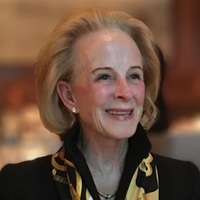
Mary Sullivan was dubbed “Denver’s Queen of commercial real estate investment” by the Denver Post in 2011. A conservative estimate attributes her with $10 billion in career transaction production while working in Denver for firms such as Coldwell Banker, Trammell Crow, Cushman Realty, Cushman & Wakefield, back to CBRE, JLL and HFF. Mary spent 35 years in CRE investments before retiring in 2016 to focus on her grown children, fly fishing, travel, skiing and cycling. Mary was gracious enough to share a salad with me at her kitchen countertop for this interview this last Spring. Shane Mahoney: Thank you for sitting down with me Mary. Some advice attributed to you is the Importance of Reputation “At the end of the day that is all you have.” Mary Sullivan: I was in the process of selling a large portfolio for a client. The deal was ready to award when Jon Gray and Blackstone bought the client and the sale went silent. I ran into Jon at a lunch and suggested he look into the sale – not because I had the listing, but because Blackstone didn’t want to own the underlying assets. After meeting with Frank Cohen I sent them my analysis with the advice to sell whether or not I kept the listing. They agreed with my analysis and advice and the sale went through. That was the prelude. So later I’m selling three CBD assets for Equity Office Properties – the sale was awarded when Blackstone came in and bought EOP. Frank Cohen called and told me that Blackstone would go through with the deal. Frank also asked if the current deal was leaving any money on the table. I said, “Yes you are, and here is where. If they come back and ask for anything at all, flush the deal.” I’m under contract and I could’ve pushed forward on the deal but instead I suggested killing it. Blackstone did kill the deal and came back to me and said, ‘We’re adding the two other office buildings, take them to market.” Shane Mahoney: That goes along with another concept I saw in multiple articles/interviews – your ferocious, tenacious representation of your client’s best interest at all cost. Mary Sullivan: When I retired, I had clients call me and say, “I don’t know if you know this Mary, but you aren’t like everybody else.” That was very rewarding. I’d worked in a bubble and didn’t interact with other brokers. I’d list the property and source the buyer. In representing my client, my client one time might be the seller, but the buyer in that transaction might be my client next time. They knew I was not at all confused about who I represented in the transaction. So you look out for their best interest. Shane Mahoney: In 2006 (I believe) I had the opportunity to see you speak on a CREJ panel about investment real estate. Your comment to the crowd was something along the lines of “Denver’s CRE Investment market had arrived." I know you’d worked hard making investors on both coasts aware of Denver’s potential. What changes to the Denver marketplace and economy helped make it possible? Mary Sullivan: I’d like to say I had a hand in it, but I was simply recognizing Denver’s position and sharing that with clients. Tom Clark with the Denver Metro Chamber worked very hard in the late ‘80s and ‘90’s and made a concerted effort to tout Denver’s physical attributes and recent infrastructure investments. The convention center, library, stadium, DIA, TREX and others were all investments that gave us advantages that helped us diversify the economy. All I did was recognize what was going on right in front of me and bringing it to my client’s attention. Shane Mahoney: So lastly, you are nearing 6 years since your retirement, what have you learned about yourself so far that you didn’t expect? Mary Sullivan: I knew myself really well my whole life and career. What I did learn about myself happened after Sherman died (her husband, Sherman Miller, passed in April 2015). I knew that when the kids were gone and it was just to be Sherman and me, we would be just fine. We wouldn’t have skipped a beat. But with him gone, I had a void that I had to intentionally fill. I learned I had to live very intentionally. I no longer had my best friend who I did everything with – absolutely everything with. Half of me was gone. I had to put myself into activities I really didn’t want to do. When people asked, I just started saying yes. NAIOP Colorado Perspectives: Wayne Barrett, President of Sterling Road PropertiesMarch 29, 2022Submitted by James McGillPrior to his position as president of Sterling Road Properties, he served as the Vice President and Market Officer for the Denver Market of Prologis. He was responsible for the management and expansion of operations through facility and land acquisitions. Prior to joining Prologis in 2003, Mr. Barrett worked for various industrial real estate companies including Lincoln Property Company, Equitable Real Estate Investment Management, Inc., Compass Management and Leasing Inc., Catellus Development Corporation, and most recently, Trammell Crow. Involved in the industry for over forty years, his diverse responsibilities have included marketing, leasing, development, and asset management of both speculative and build-to-suit industrial projects. Wayne Barrett sat down with James McGill to share his Commercial Real Estate background, what is his favorite development/project to work on and of course what’s next for him.
James McGill - How does Wayne Barrett get into Commercial Real Estate? Give us a rundown of how you spent your time during the 40 years in CRE? How much leasing were you involved in? How did you get to Denver? Tell us about the Norm Blum biking story? Wayne Barrett - Went to college in New York (SUNY Oswego), and grew up in Armonk, NY (just north of New York City). After school I came home and was not ready to find a typical job, so ended up riding my bicycle with a high school friend (Norm Blum) to Colorado. Bounced around in various jobs (most memorable being the Spaghetti Factory) and found a temporary job with Coldwell Banker (now CBRE) in their data bank. This led to Development positions with Wickliff and Co, Lincoln Property Company, Equitable Real Estate, Trammel Crow and ultimately Prologis (for 18 years), which I left at the end of 2020. All told I have been in the business for 40 years, with over 30 million sf of leasing transactions.
James McGill - What was your favorite development/project to work on during your career? Wayne Barrett - I really enjoyed developing two dynamic Business parks in the main industrial/distribution area of Denver along I-70. The Former Stapleton Business Center and Prologis Park 70. Ultimately, we developed over 8 million sf, and we began with vacant land (one being a former airport), and no utilities. These continue to be prime locations for a number of Fortune 500 companies distributing throughout the Rocky Mountain region.
James McGill - How has the industrial market evolved over the years you have been in the industry? Wayne Barrett - When I started in the industrial market (w/Lincoln Property Company), the standard space was 22 foot clear with no more than 100-foot truck courts, no truck parking, and rail service. Obviously, this has changed w/36-foot clear heights (and going higher), 180-foot truck courts and plentiful truck parking. Rail service has become obsolete for most developers which lends itself to the cross-dock configuration that is extremely popular today. Another factor that has changed the market dramatically has been the flow of new capital into commercial real estate. With Wall Street running many of these investments (and REITS), the analysis of the industry has become extremely sophisticated and scrutinized. There are many dynamics that are required by this capital to be considered when acquiring/selling/developing a property. I fondly remember the old days, where it was more of a "Gut" feel of the real estate, and a basic income/cost analysis of the property, was sufficient for most investors. This level of detail does not work today.
James McGill - Tell us a bit more about your “museum”? What are you up to today? Wayne Barrett - Since I left Prologis, I have been active in the purchase of small industrial properties in the metro area. Currently I am the owner/manager of over a dozen properties, which keeps me busy, but allows me some leisure time. One of the more enjoyable pursuits has been a collection of artifacts from my career. I have dedicated a space to house these in one of my buildings, whose genesis was cleaning out my garage, to my wife's delight, but it's been fun looking back on the last 40 years. When you see the number of cycles we went through, starting with the Oil boom/bust and the S&L crisis of the 1980's to the great recession of 2008, and beyond. New development has continued to change the landscape, from DIA to Coors Field and the rediscovery of the Rino/Lodo/Lohi neighborhoods to name just a few... It's truly astounding the changes we have seen.
James McGill - What are the three characteristics you think are most crucial to be successful in CRE? Wayne Barrett - Perseverance is probably the best characteristic I can think of for a rewarding career. If you look around at the most successful brokers/developers during my time, they all went through hard times, but figured out how to stay in the business. One of the best pieces of advice I ever received was from a colleague who summed it up with two words: "Low Overhead". Do not put yourself in a position to make a decision based solely on the initial monetary gain. The key is staying in the business long enough to be able to recognize the opportunities when they present themselves.
James McGill - What groups/associations were you involved with that you think were the most valuable to your career? What groups/associations would you recommend a young person getting into the industry join? Wayne Barrett - Certainly, NAIOP has been a leader in the industry with relationships around the country. In addition, I try to stay active with SIOR and DMCAR who I believe are industry leaders in their respective areas. Being active in any of these will provide an excellent way of staying relevant and a great source of contacts.
NAIOP Colorado Perspectives: Ann Sperling, Senior Director, Trammell Crow Co.December 17, 2021Submitted by Jessica Ostermick
Celebrating an incredible nearly 40-year career in commercial real estate that has touched so many communities and property types including office, industrial, mixed use, retail, hotel and healthcare, Ann Sperling sat down with Jessica Ostermick to share her perspective on resiliency, stewardship, what defines a good job and of course what’s next for her. Jessica: First of all, congratulations! In addition to your many achievements, roles and completed projects, your community involvement within and outside our industry throughout your career has been remarkable. What value has such involvement brought to you and how might you advise others on engaging with industry groups and other organizations? Also, remind us how you’ve spent those 40 years in the business. Ann: I spent half of my career in real estate development – the business of the business – and the other half in leadership roles, of large public real estate companies. Most professionals do one or the other, but I had the privilege of doing both. While leadership and development seem like separate activities, they cross fertilize because the capital partners, stakeholders, brokers and communities are the same. My activities on both sides of the ledger have served to enhance my relationships and industry knowledge. Regarding community involvement and especially for those of us that develop or invest in real estate, I believe we should see ourselves as stewards of the community in which we live and work. Personally, I’ve been lucky to have worked in Denver -- a city I love! We have an obligation to engage with the communities we touch in a profound way. One’s involvement more broadly in both industry and civic activities enable us to be much more fluent in what’s important to the community. Lastly, such involvement affords young professionals the chance to develop leadership skills in a low-risk way. For example, I sat on the board of Children’s Hospital Colorado, as Treasurer and Vice Chair, and which enabled me to build relationships in the broader community with business leaders. It also enabled me to try on leadership skills within a very sophisticated organization and helped me grow as a leader. For those of us affecting community landscapes, community service is our obligation but also one that affords meaningful professional development and growth. Jessica: After 40 years in CRE, several market cycles, and hundreds of projects, is there a project or experience that taught you a valuable lesson and potentially impacted your outlook or approach going forward? Ann: There are so many to choose from, but Crossroads Commerce Park comes to mind as a project example. Crossroads Commerce Park was a brownfield industrial site that ultimately showed me the power of public and private sector collaboration. The City of Denver, Adams County, CDPHE and the EPA were all involved in this site that had a fence around it for 20 years in the middle of a neighborhood. When the public and private sectors are on the same side of the fence, it’s amazing what can be accomplished. The public sector was passionate about cleaning up the environmental contamination, the community welcomed the improvements such as the addition of lighting and landscaping, and Adams County sought economic development and job growth. Now a top-notch 1.0 million square foot industrial park, Crossroads has won numerous awards from NAIOP, ULI, EPA and the National American Planning Association; and we intentionally invited our public sector stakeholders to accept the awards with us because it was truly an example of public/private partnership. Jessica: Resiliency and grit are two characteristics central to a long and successful career in our industry. Where does your resiliency and grit come from, and how do you cultivate it? Ann: Certainly some is acquired. I’m the youngest of four and the only girl, so growing up with three older brothers prepared me to work in a male-dominated industry. I also lost my mother at a young age and had to “step up” in many ways. I developed an aspirational life view and found a way to engage with my family in a unifying and enduring way. We all have life experiences that help shape us, but it seems that sometimes the worst experiences can also fuel the best things in your life. Having great mentors, leaders and partners early in my career gave me a sense of trust and confidence that has proven beneficial while navigating our cyclical high-risk industry. Challenges are expected so being in the proverbial fox hole with the right people is critical to persevering. I have had the honor of being close business partners with several individuals who I respected and trusted which made all the difference in my career. I took note early on of how people I respected faced economic downturns with integrity and compassion, and honored commitments to partnerships. Life is long so sticking with the relationships, partnerships and commitments you’ve made through hard times pays back in the long term. Jessica: Over the years, you’ve worked at Trammell Crow Co. (twice!), Catellus and JLL. What factored into your decisions to take on new opportunities, and how do you define a “good job?” Ann: I certainly didn’t join TCC thinking I’d spend two-thirds of my career there but began with an aspirational view of achieving everything I could at that company – including making partner and being the first woman partner at TCC and after only 4 years. I was constantly looking for opportunity within the firm, and as such had five different jobs or “reinventions” in the first 25 years. I sought out some of those opportunities and in some cases, others saw my potential first, which required me having the guts to go for a job that I didn’t immediately feel comfortable pursuing. You learn a lot about yourself in stretch situations, and I’ve found that being authentic in my identity - even if it looks different than the status quo - is a strength as opposed to trying to fit into a homogenous expectation. I evaluate job opportunities in the context of “what good looks like” and certainly the traditional elements of compensation, position and influence matter. What really matters most to me though is culture and a sense of partnership that are not always easily found but are deeply impactful towards your long-term success and overall happiness. Jessica: Tell us what’s next? Ann: This is more of a pivot versus a retirement. I will stay involved with some important projects and commitments at TCC for a while, but ultimately, it’s good timing because our company and office are in such great hands. I want to be the person that steps aside so others can step up rather than being in the way of their growth. I have oodles of energy left and have so many things I want to do from skiing, hiking fly fishing, and travelling along with my civic passions of healthcare and regenerative medicine. I am also passionate about corporate governance and am pivoting my business activities to three corporate boards, including two NYSE public corporate boards. I have been thinking about this next phase for a while and intentionally structured my next chapter to be as active as my last phase, just focused on new challenges. |
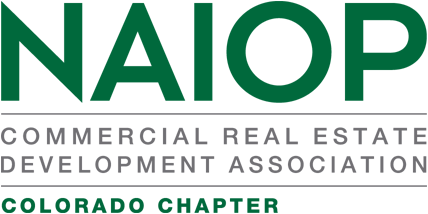
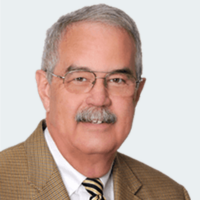 John F. Ellis
John F. Ellis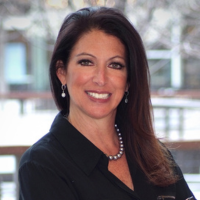 Lea Ann Fowler
Lea Ann Fowler